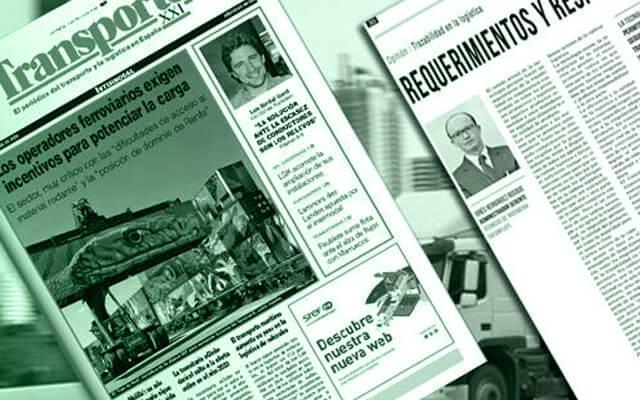This opinion article published by the manager of TDI, Engineering Techniques Ginés Hernández Rosique, in the special edition of Transport XXI » Cold Logistics» of September 15, edition that will have additional diffusion in the fair Fruit Attraction of Ifema, Conxemar Vigo Y ATFRIE Congress.
The current state of technology allows traceability to be monitored at controlled temperatures in all production and logistics processes of those products subject to food safety or product quality standards.
The technologies and standards that allow it are mature. Both those that are mandatory, and those required by the industry itself, are available to all agents in the logistics chain and have been on the market long enough for them to be in use by all participants in the logistics chain. .
It shouldn't be extraordinary that both parts of the chain fulfilled their part. But if a link in this chain does not comply or does not apply traceability, it is impossible to guarantee the quality of the product, as well as the safety for the end user.
The technology allows monitoring traceability in controlled temperature in all production and logistics processes.
Certain actors in the chain focus on long-distance transport, such as those responsible for temperature traceability. However, the truth is that the responsibility is not only the carrier, but of all the actors, especially the “last mile” storage and distribution part, which should carry out an analysis of all their processes: unloading, storage and exposure to the consumer, to ensure that the products maintain this traceability. Products that, with the deterioration of their quality, can affect the consumer safety or cause future health problems for it.
Some of the actors do not want to take responsibility for their areas of control.
Although I am not in a position to assess the economic damage that is caused by incorrect traceability and that it is not carried out in real time, based on my experience and knowledge, I can assure you that a large part of this damage could be avoided with a small effort from all of us. the links/actors of the logistics chain. The technology exists, the integration of information is possible, the only problem is that some of the actors do not want to take responsibility for their areas of control and prefer to make the other party responsible.
The efficiency and quality of temperature-controlled logistics require specific controls adapted to the uniqueness of the product. Specifically, real-time control of the controlled temperature in each of the processes that make up the service such as loading, en route, unloading, storage and public display is imperative. The Food Safety Committee of AECOC, the association of manufacturers and distributors, defines traceability as: “The set of those pre-established and self-sufficient procedures that allow knowing the history, location and trajectory of a product or batch of products throughout the supply chain at a given time, through certain tools.”.
The EFFICIENCY and QUALITY of logistics at controlled temperatures require specific controls adapted to the uniqueness of the product
Traceability is also defined by the International Organization for Standardization (ISO 9001:2008), in its International Vocabulary of Basic and General Terms in Metrology: “The property of a measurement result or standard value whereby it can be related to specified references, usually national or international standards, through a continuous chain of comparisons all with specified uncertainties.”.
Download PDF Opinion Article especially on Transport XXI » Cold Logistics» September 2019
Visit the online version of the TransporteXXI Magazine

